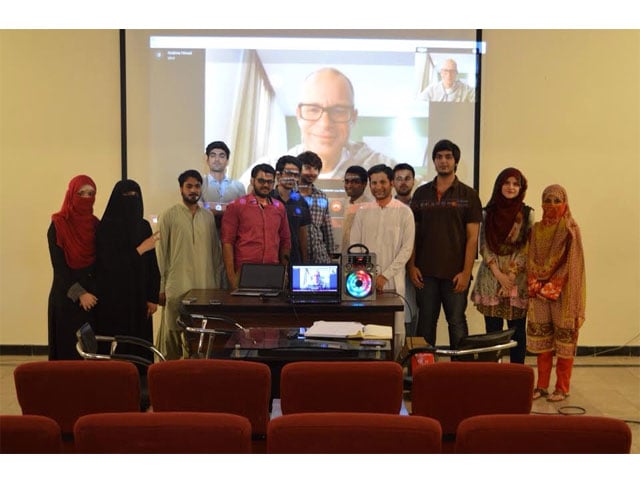
The students, making Pakistan’s first team, have gathered in Peshawar this summer to use the cutting-edge discipline of synthetic biology to solve one of the most pressing environmental challenges the country is facing.
iGEM or the international genetically engineered machines competition is a flagship student competition that started in MIT and has been happening for the last 15 years with 285 teams from across the globe.
The team consists of five girls and seven boys from across the country, including Karachi, Hyderabad, Lahore, Kalat, Swat, Waziristan, Mardan and Peshawar which makes it a great representative of biotech talent across the country.
Dr Faisal Khan, principal Investigator and iGEM Team Supervisor who is also the Director of the Institute of Integrative Bio-sciences at CECOS University, Peshawar told The Express Tribune that they have been waiting for this moment to introduce synthetic biology in Pakistan and what better way than giving students the opportunity to do cutting edge biotechnology research.
Pakistani organisation wins Global Goals Award in New York
“We cannot be playing with Windows95 in an age of Android and iOS and we desperately needed this upgrade in life sciences in the country,” he said.
The iGEM Peshawar team is working on a bio-based sensor that will detect poisonous gases in the air. It is based on a bacterial cell with genetic circuits made of synthetic DNA that the students designed and fabricated to produce different colours in response to the presence of carbon monoxide, nitrous oxide or both.
“This is a great proof of concept. If we can create a bio-sensor for these gases, we can in principle create biosensors for other uses like detecting adulterated milk, toxic metals in drinking water or even temperature-sensing devices,” said Dr Khan.
The summer research also had a ‘human practices’ where the students looked into the ethical and social implications of their project by talking to different stakeholders and gathering insights that could be integrated into their project.
Seven Pakistani universities among world's top 800 universities
Another fascinating side, he said, was the outreach and education efforts the iGEM team put in by visiting schools and colleges in and around their cities and leading mini-workshops on synthetic biology to share the latest with the students and inspire them to pick up science as a career.
Sidra Usman, who is the member of the iGEM team Peshawar, said that she feels very proud and lucky to be an iGEMer. She said that it really makes one believe in themselves and that the world is beyond grades and numbers.
Another team member of iGEM from Karachi, Muhammad Ali said that he is proud to be a pioneering synthetic biologist in Pakistan though iGEM and at the same time feels the responsibility to create an impact in the world with the power it grants.











COMMENTS
Comments are moderated and generally will be posted if they are on-topic and not abusive.
For more information, please see our Comments FAQ